The Lathe of Heaven
The Lathe of Heaven is a distinctive dystopian novel in which protagonist, George Orr, named in a likely homage to George Orwell, possesses the startling ability to reshape reality through his dreams. The book delves into the consequences of Orr's power, exploring various dystopian scenarios through multiple alternate realities, and echoing themes commonly found in the writings of Philip K. Dick.
Hardcover. First Edition, First Printing. Octavo, cloth-backed boads. New York: Charles Scribner's Sons, 1971. Hugo Award nominee (1972). Nebula Award nominee (1971). Locus Award winner (1972). ISBN: 0684125293. #10863.
Some fading to top page edges and top edge of boards, else nearly fine in near fine dust jacket.

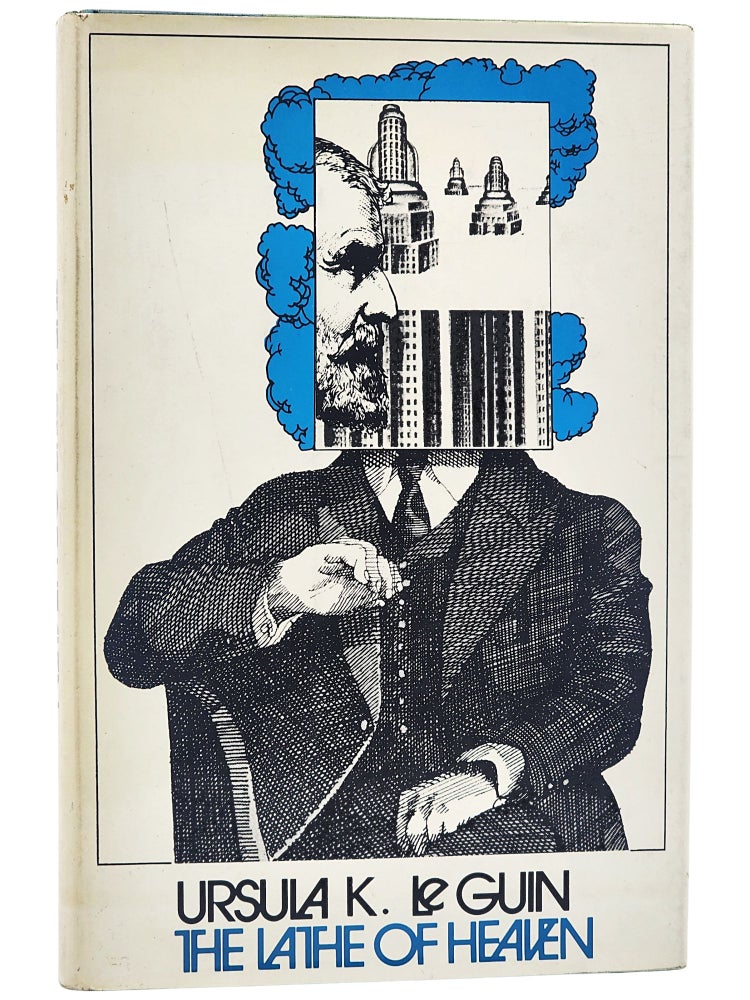
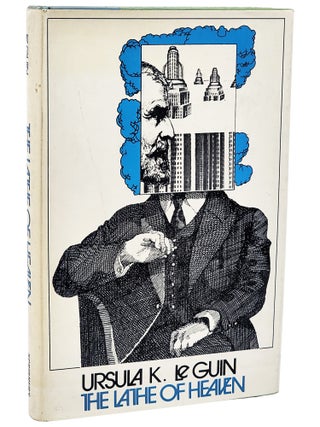
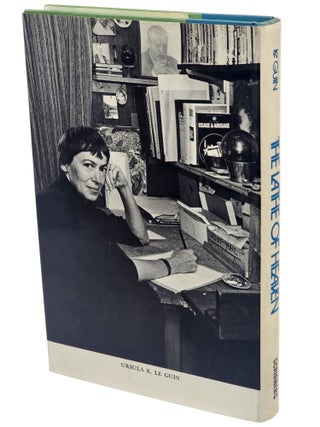
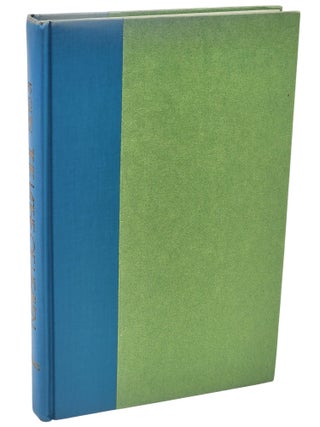
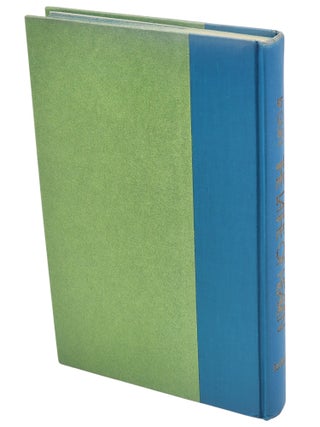
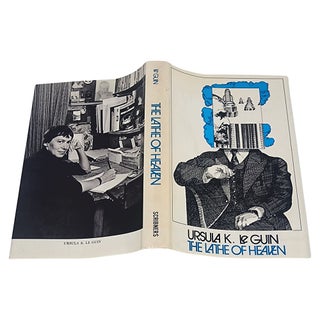
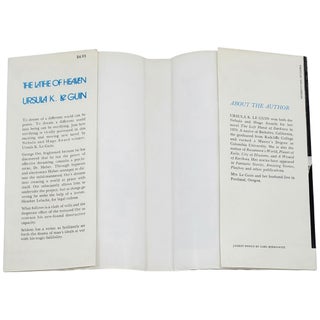
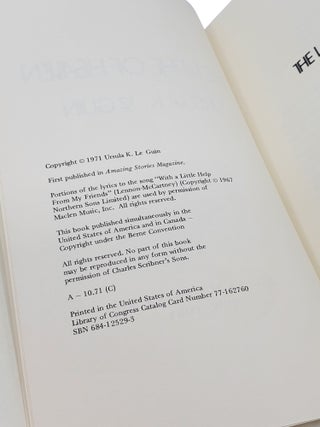
Set in a future Portland, Oregon, grappling with issues like overpopulation, global warming, epidemics, and war, The Lathe of Heaven by Ursula K. Le Guin is a compelling science fiction novel that delves into the consequences of power and the nature of reality. At the heart of the story is George Orr, a man with a disturbing ability: his dreams can change the world—"effective dreaming" as Orr calls it.
When Orr wakes, he finds his dreams have altered reality. Terrified, he seeks help from psychiatrist Dr. William Haber, who initially agrees to assist Orr but soon begins to exploit Orr's effective dreaming using hypnosis to create his vision of a perfect society.
The story delves into the profound ethical implications of godlike power. Haber's well-intentioned interventions, such as eradicating racism and solving overpopulation, result in catastrophic consequences. Orr's dream of solving overpopulation triggers a deadly plague; his dream to eliminate cancer leads to a society where euthanasia is commonplace; and a dream for world peace ironically incites an alien invasion. Each dream-induced alteration increases Haber's wealth and influence, turning him into a de facto ruler.
Le Guin's exploration of psychologically derived alternate realities can be seen as a tribute to Philip K. Dick, whose work she admired and acknowledged as an influence. The Lathe of Heaven has been adapted into television films in 1980 and 2002, each offering a unique interpretation of this thought-provoking work.
The novel, rich in philosophical and ethical inquiry, remains a significant work in the science fiction genre, highlighting Le Guin's mastery in blending imaginative storytelling with profound thematic exploration.